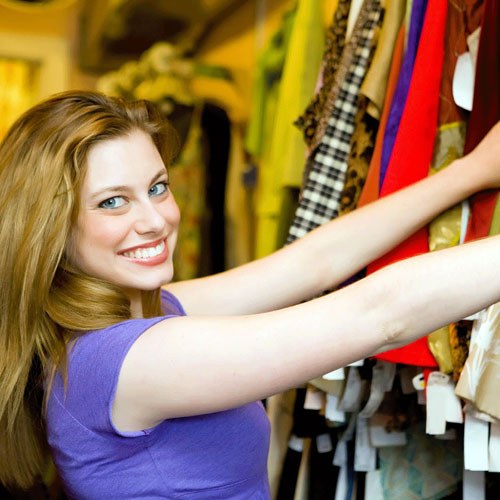You will need
- - registration as legal entity;
- premises;
- - hire street stalls;
- - permission to trade (in accordance with sanitary and fire regulations);
- - equipment for rooms (depending on the size of the store: shelves, hangers, racks, mannequins, mirrors, tables, cabinets, office, lighting, storage, floor mats, and an Ironing Board, iron, equipment for places stay: microwave, table, chairs, kettle; means for maintaining purity: bucket, MOP, rags, window cleaner);
- - brochures, leaflets, posters;
- - goods (shoes, clothes, accessories).
Instruction
1
One of the available ways to realize their entrepreneurial ability is opening up your own clothing store second-hand. Clothing for the store bought, usually, large dealers, who in turn, takes her abroad. Clothing second-hand — these are things that have been worn, but has not lost its marketability. Stoke are also found among such clothes is the remains of a range of branded stores that were not sold out and given at the low prices so as to make the shelves for the new collection. The first step is to choose the location of the clothes. You can access point, renting a room in any trading room, and you can start with a more simple selling on the street on the shelves. Choosing a room, be guided by the specifics of the area. If there are such shops, which will become competitors. Area the best option for a start — up to 40 square meters. If more space is split into several areas: by seasons, by age categories can be divided into women's, men's and children's departments. So buyers will be easier to navigate and more enjoyable to come to you. Must be fitting with mats and hangers, checkout area with Desk, Luggage storage, mirrors, shelves and racks for clothes, mannequins. According to the norms of SES and fire safety in your shop should be provided with a bathroom, a dining room and sorting of goods, as well as first aid kit, a fire extinguisher, at least 2 liters of drinking water and 20 liters of technical cleaning products.
2
You need to decide from whom and in what quantity you will to purchase a product. Now a lot of offers from large and small providers, so any issues with supply should not be. Purchasing the product, you can view the belongings in the bag. Suppliers of second-handand can sell your product by setting the price either per kilogram or per unit. When choosing a provider, pay attention to which countries he buys clothes. Well, if the purchases were made in several. This will allow to adapt to changes in the economic sphere in the case of unfavorable conditions — you always have to be alternative options. It is most advantageous to buy in large quantities, but from the same supplier. This will allow you to use discounts and bonuses.
3
The choice of the range and quantity of purchases to open a store second-hand individual. As a rule, for work with medium permeability you need about a ton of things. To take the best mix of women's, men's and child/teen clothing. This will greatly expand the number of customers. Large volumes of sales are achieved most often in autumn and spring season. After purchase it is necessary to sort. First, choose things to sell that can individually and at a higher price, due to their good mind. Secondly, to do the sorting for display in the window by category of clothing. Male and female pants separately, dress separately, as separate mini skirt from Maxi, separately, to locate jackets, sweaters, t-shirts. Among one category will place the colors (bright, dull), in size, at a price (the closer, the more expensive). Set the price you need, based on the level of deterioration of the garments, paying attention to collars and cuffs, the elongation of the fabric, fading of colors, Satanist of the pile.
4
Organizational issues depend on the scope of your business. If you have a small area of the store, then you can serve him. If the average and more, then you need to hire 3 to 5 experienced sellers who know the brand of clothing, a sled and trends. Also can not do without the cashier and the Manager watching in the trade room. Well, the guard or men that will combine the functions of policing and supervision for staff.
